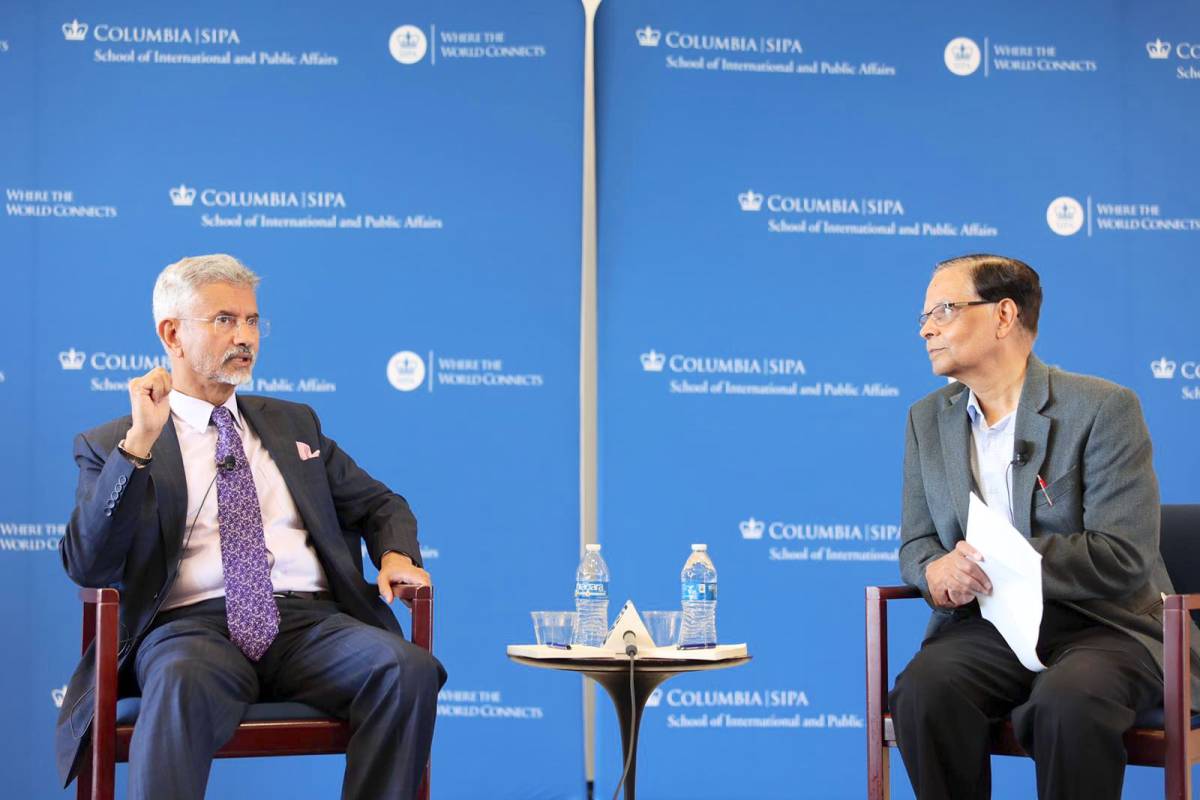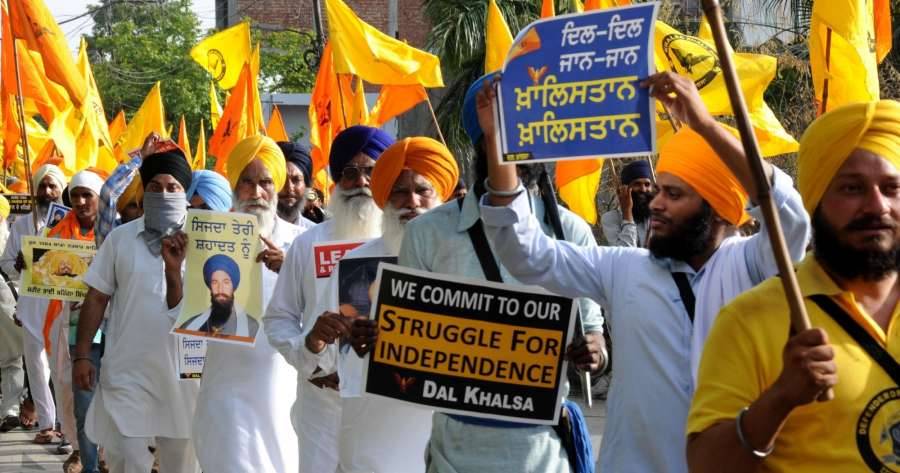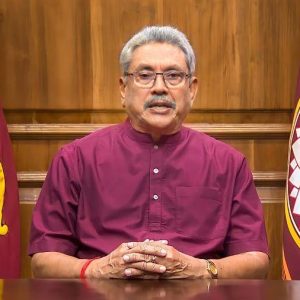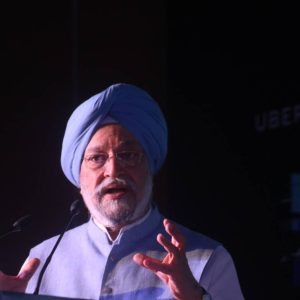Explaining that sometimes in the diplomatic world “we get too intense about our problems and debates” Jaishankar noted that “it takes someone with very practical common sense you bring you down to the ground.”..writes Reena Bhardwaj
External Affairs Minister S Jaishankar on Wednesday said that it is in the mutual interest of India and China to find a way to accommodate each other as the “Rise of Asia” is contingent on the economies of the two countries getting along well.
“The biggest thing we have seen in the world is the rise of China. It has risen in a dramatic manner. It’s in mutual interest to accommodate each other because the rise of Asia is contingent on the three biggest economies getting along with each other,” said Jaishankar at an event at the Columbia University.
He said that China’s trajectory was different in comparison to India because of “three big things that went wrong for India” were partition, “delay” in exercising the nuclear option and the third was the “delay” in economic reforms.
“So China, not only, did not get partitioned, it actually grew territorially. China exercised the nuclear option in 1964. We did that half-hearted in 1974. We did it, but we did not do it. So we had to do it all over again. From 1974 to 1998, we created a big burden on ourselves and also allowed Pakistan to catch up in that period,” he said.
He, however, made a special mention of the economic reforms. “Ofcourse, the most serious was fairly the economic reforms. Because if you look at China, you can say it embarked on economic reforms pretty much after Mao died. By 1980 China was very clearly set on economic reforms,” the external affairs minister said.
Speaking further, Jaishankar said that for almost 50 years, India regarded the US with suspicion and struggled during the 2008 nuclear deal and it has taken a lot of effort to overcome earlier assumptions and forge the mutual relationship as it stands today.
While speaking at Columbia University, New York, Jaishankar said, “Despite the US offering a very clear advantage, we struggled during the 2008 nuclear deal as our innate and deep-rooted suspicion towards the US held us back.”
He said that the attitude towards the US between the late 40s and 2000s, for almost 50 years, India regarded the US with suspicion and a lot of wariness. “It was a very substantive relationship. But the overall foreign policy assessment of the US was a deep caution. When the world began to change, the tenability of that view came into question. The nuclear deal in 2005-2008 was a struggle.”
“It has taken us a lot of effort to overcome earlier assumptions in order to forge a different relationship with the US,” he added.
External Affairs Minister Jaishankar highlighted that one of the key differences that Prime Minister Narendra Modi has made on this relationship is that he has not carried any ideological baggage.
“He is not a person who is rooted in a certain world which makes you fundamentally distant from the US. He has been very practical and outcome-oriented and he found convergences with the US. That is why we have seen remarkable progress in the last 8 years. We would not have had that if we were not ready to challenge the assumptions that held us back early.”
Explaining that sometimes in the diplomatic world “we get too intense about our problems and debates” he noted that “it takes someone with very practical common sense you bring you down to the ground.”
He also admired his predecessor and former foreign minister Sushma Swaraj. “I worked with her. We made a very good team. She brought a lot of political experience and certain practicality of life to what is the profession which sometimes tends to be circular.”
Jaishankar termed 75 years of independence as a good occasion to reflect. “A set of people over a period of time that determine what is right or what is wrong. They have a view of the world and those are the assumptions that they make. And the reason I wrote that is to question the assumptions.”
“The world has changed so much and the opportunities for India and the challenges for India. The assumptions that we had `10 years ago are today challenging. The book was written with exercise and provocations. Which is to read the book and argue with me.” (ANI)














